Why photograph weddings on film?
A conversation that I had on a blog recently with a friend of mine who has a studio in Bowness-on-Windermere set me off thinking about why I still shoot on film as well as digital. I thought I might clarify this for anyone wanting to book me to photograph their wedding and also add my two cents to the wider debate on film vs digital etc….
Digital images are synthetic versions of their film counterparts, so a digital image is one that seeks to replicate and improve upon the older film process that we used to use to create our photographs. Film is an organic or largely chemical process which works on the same principal as digital of having something behind a focused glass lens to capture an image of whatever your camera is pointed at.
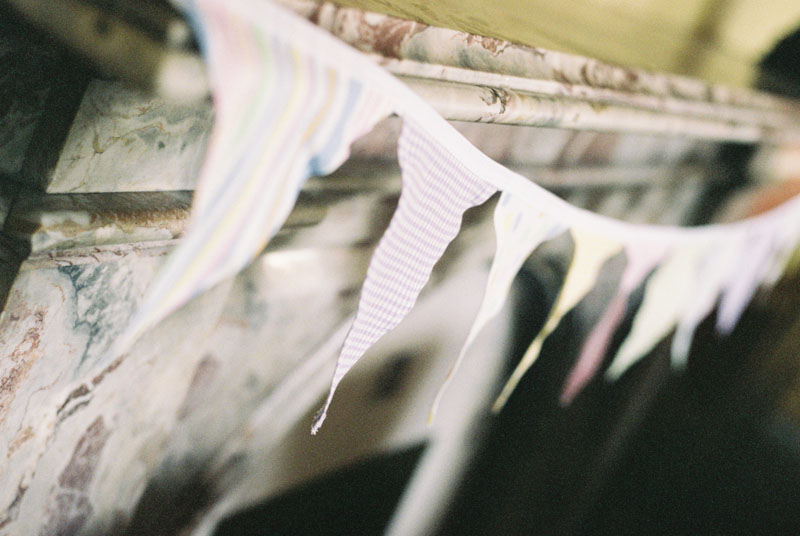
I found that when post processing my digital images on the Mac that i was striving to achieve a filmic look from the effects that I was employing on the images, bearing in mind that this period was after I had already invested significantly into digital technology, learned how to use it and done my Adobe Photoshop accreditation.
The reality of the situation was that if I shot film, I would make my images look exactly how I wanted them to look in camera. This would mean that whatever came out of the dark room to be scanned would be the finished image, plus a little retouching for imperfections. However……….. There is no denying that digital has its advantages of which the chief advantage is cost. Memory cards can be used for an indefinite period as long as you format and keep them clean, to clean a sensor on a digital camera costs around £35 every two or three months of heavy usage.
Film costs around £7 for 36 images once chemicals to process the film and scanning time at the computer are taken into account.
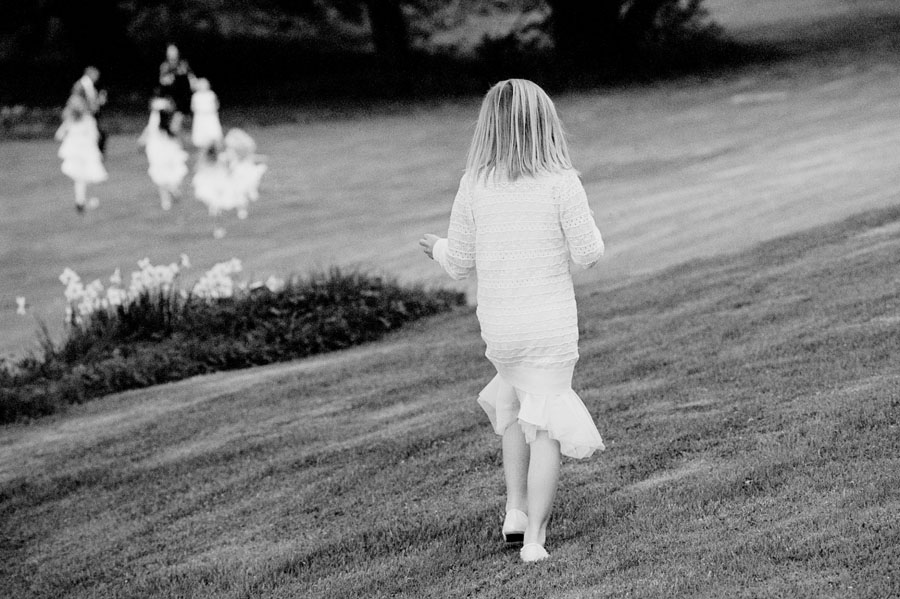
I decided that I would work on a percentage at all of my weddings from 2010 up to the weddings that I will be shooting in 2012 and 2013. That split would be 80-20. 80% digital and 20% film, carrying two cameras at once with the digital backup in my bag so I can always shoot on either, freeing me up to shoot the images that I want to shoot on film and the bulk digitally.
There is no doubt that I am an oddity in this respect as far as how I work with the two mediums together and I can find no-one locally doing anything similar or even considering using film based alternatives to digital.
Digital rules the roost in wedding photography because the technology allows us to do things that with film were impossible, so film has been left behind with only Kodak pushing the technology and Ilford in financial trouble and Fuji struggling to justify opening its plant to produce the stuff.
The future for film looks grim……
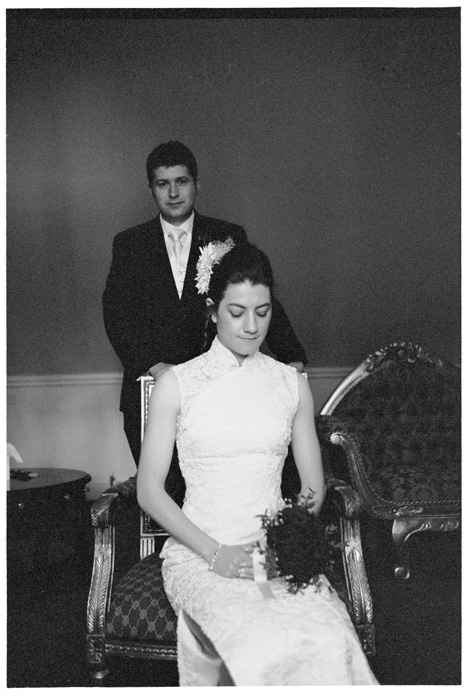
Does this then mean that images like these will become a thing of the past? Shoe boxes of photos in the cupboard will no longer exist because they are all online in our cloud storage and film cameras will become obsolete with expensive ones going to museums and collectors and the cheap ones going to the dump? For all intents and purposes, yes is the answer. Film will die eventually, no matter how many resurgences it goes through as its production cost will become astronomical. A cost that will be passed onto us as photographers which we can little afford.
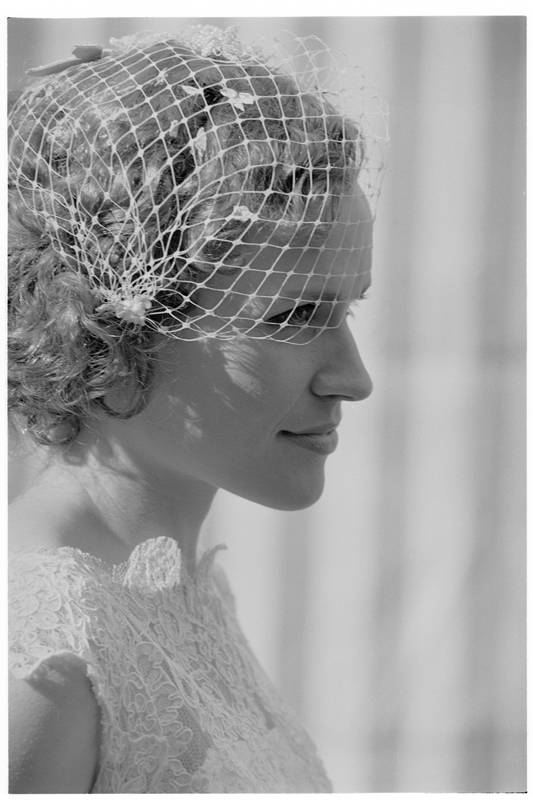
So we have resolved that film is expensive and because it is no longer a popular medium, the emulsions used to capture images on film are at least ten years old and it takes a lot of time to develop and get right……
But just look at it.
The range of tones that film can capture, the subtle way that with care you can make light fall off a subject, its muted but accurate colours and the sharpness and clarity with which it delivers black and white make film completely unique.
Its not about delivering an image that your clients are happy with but rather an image that your clients are ecstatic with, being able to reproduce images from negatives that are real and have a permanence, with a tactile finish to each negative and print.
From my own point of view the smell of chemicals used to develop the film at home will be a memory that my little girl can revisit hopefully when she is old enough to pick up a camera. Seeing the negatives soaped and coming off the reel for the first time and knowing that what is on that strip of negatives is going to look exactly how I saw it in my mind when I pressed the shutter on the camera.
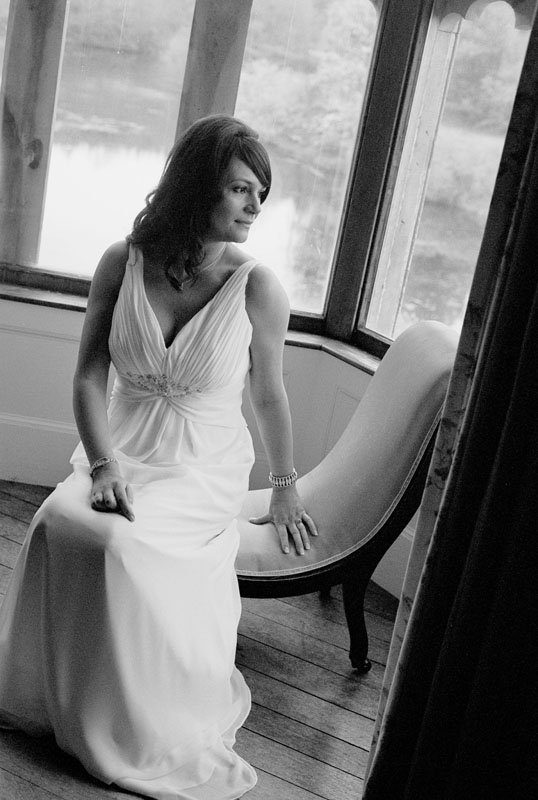
The reason that my images look so different to everyone else’s is because I use techniques and processes that nobody else has the time or patience to use. My background is in modelling, editorial, fashion and studio work, so my influences are different to everyone else’s too and I take ideas from all over the media from MTV to Vogue, Harpers, ID and a pile of American wedding magazines that I subscribe to and love.
Film is perfect for vintage styled or themed weddings of which I have a few this year and am really looking forward to. The future is without any doubt digital and what I continue to use for at least 90% of my photography and 80%-90% of weddings, but as long as my clients still demand the type of images that only film can produce, it will always accompany the digital.
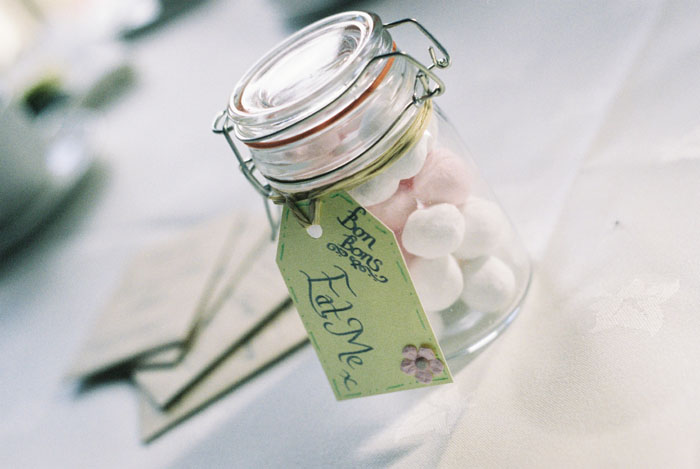



0 Comments